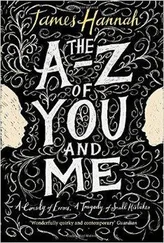James Hannah - Sign Languages
Здесь есть возможность читать онлайн «James Hannah - Sign Languages» весь текст электронной книги совершенно бесплатно (целиком полную версию без сокращений). В некоторых случаях можно слушать аудио, скачать через торрент в формате fb2 и присутствует краткое содержание. Год выпуска: 2015, Издательство: Dzanc Books, Жанр: Современная проза, на английском языке. Описание произведения, (предисловие) а так же отзывы посетителей доступны на портале библиотеки ЛибКат.
- Название:Sign Languages
- Автор:
- Издательство:Dzanc Books
- Жанр:
- Год:2015
- ISBN:нет данных
- Рейтинг книги:5 / 5. Голосов: 1
-
Избранное:Добавить в избранное
- Отзывы:
-
Ваша оценка:
- 100
- 1
- 2
- 3
- 4
- 5
Sign Languages: краткое содержание, описание и аннотация
Предлагаем к чтению аннотацию, описание, краткое содержание или предисловие (зависит от того, что написал сам автор книги «Sign Languages»). Если вы не нашли необходимую информацию о книге — напишите в комментариях, мы постараемся отыскать её.
Sign Languages — читать онлайн бесплатно полную книгу (весь текст) целиком
Ниже представлен текст книги, разбитый по страницам. Система сохранения места последней прочитанной страницы, позволяет с удобством читать онлайн бесплатно книгу «Sign Languages», без необходимости каждый раз заново искать на чём Вы остановились. Поставьте закладку, и сможете в любой момент перейти на страницу, на которой закончили чтение.
Интервал:
Закладка:
They would cross lot 51, where the contractor would build a solid two-story house, go bankrupt, and sell it for practically nothing to Evan Fredericks and his wife, Alice Wolff.
No one, back then, walked across lots 50 or 52. No cannibal Indians, Spaniards, Frenchmen. But whatever the rooster meant, it came only once more, when Berthier was eighty-seven, sitting in the sunlight of a doorway near Chartres, the cathedral spire directly before his eyes across a field full of late summer wildflowers. But it came and went with hardly a flicker, the smallest cloud across the sun, a brief shadow somewhere in the flowers. Berthier pursed his lips and took a long drink of water from the clay jug never out of reach. He always smelled ripe from the urine he had to pass so often. It frequently trickled in his pants before he could loosen the buttons. Everyone considered him a thoroughly disgusting and worthless old man.
April 1987
Evan Fredericks had not thought about the rain all day. Instead he had tried to concentrate on his work but had really only fidgeted. At lunch he had stayed inside and reorganized some files, straightened his desk drawers. He knew that eventually he would solve the problems they had passed on to him. He had always been able, with time, to get down to work. But it seemed to take longer and longer and he was just over thirty-seven.
Though rain had been forecast for several days, when he stepped outside the gusting rain surprised him, as did the thought he had just had — almost thirty years to retirement. Jesus, he thought. “Jesus Christ,” he muttered, as he forgot to unfurl the umbrella but instead rushed down the steps and around the corner to the parking lot. There the full force of the wind hit, whipping his suit tight against him, the raindrops infrequent but large and with the sting of nettles.
Inside the car Evan caught his breath, let the energy of the coming storm distract him from the problems left spread across his desk on endless computer sheets. A design flaw by some young engineer, he thought, as he started the engine and turned on the wipers. The building emerged sharply from the watery blur. He watched other employees scatter across the lot. Wind-sculpted women’s dresses revealed panty lines, pubic bulges.
He turned the radio to his usual station to catch the last of the news, but there was only a steady buzz interrupted by the crackle of lightning. It’s off the air, he realized, as he pulled into the slow traffic.
Which slowed even more though the city was only medium-sized; one of the reasons they had taken this job, given the choices, was the city’s “driveability” as Alice called it. That and the promotion and leap in salary which provided the security for a down payment. He thought of the house, of Alice there now. Ahead of him, the traffic lights went black and the massive storm stopped brewing overhead and stalled, unleashing rain in solid wind-blown waves.
Evan brushed the windshield with the back of his hand, reached and turned the radio to a country-western station for news bulletins, but the announcer seemed unconcerned though the lightning punctuated a song about whores drinking sangria.
From a nearby car, the traffic now only inching forward toward the dead lights, Evan Fredericks would only be a blur through the downpour. Brushing the window free of fog or daring to roll it down, one would see only the silhouette of a thin man in a damp suit, the green light from the dash not softening the sharp chin and nose but rather somehow compressing them, making him look childlike and a bit ill. A boy, dressed in his father’s suit behind the huge wheel, pretending in the driveway. Green from having smoked a piece of cigarette from the ashtray. Moving the wheel a little, hoping to be found out soon. “Evan, what on earth are you doing? We’ve been looking all over. Your father… what’s that smell? Evan Fredericks…”
Taken from the car, right out of the rain. Angry, loving, sympathetic mother. Straight to his room. A slap on the bottom. A hot bath. The comfort of old quilts from dead aunts.
The man in the car was now at the light. The wipers, on high, slapped the chrome edging of the windshield. Evan pulled across the intersection slowly.
At some time he had convinced himself of everything. At some time he had begun acting the role of Evan Fredericks. But this was not what he told himself now, across the intersection, his eyes on the blur of taillights ahead, his left foot poised just over the brake pedal.
But sometimes he felt all the symptoms. Like earlier today when he doubted his ability for a full eight hours, moving from desk to coffeepot, to files, to phone. But not dialing anyone in the building, or Alice at home. Home and Alice, the two things he would not doubt, could not imagine such doubt as that would take. Though really he did. When he counted back ten years to before their marriage or considered the tumors once inside her like spongy fruit.
Or sitting on the floor in front of the sink, his head even with the plumbing, the water pattering from the plastic pipes. I should be able to do this. I can if I only try harder, if I keep calm. Look what you solved yesterday at work. And the gutters look fine. This, the front door lock next, flashing over the garage.
At night, for years, he waited for something to pull him together. I just have to take my time, he told himself. And not get anxious. Evan Fredericks playing the man in bed next to a woman; the man handy around the house. Playing this man in the car. Waiting to be caught, admonished. Eager to confess and make amends in exchange for love and everything else.
What he dreads would be a list including everything imaginable. He is tricked by events, fooled by something he can not describe, though he knows it is not just himself, but something outside somewhere. It all goes too far back. Only keep the bitterness away. Finally, it is all too unclear, too vague. Like this day of wandering thoughts, the problem clearly before him on printouts, the storm generating outside, and his mind on “heartache,” which is as close as he ever came to naming the smallest part of it. “Nostalgia,” he had only once called it. But he knew even back then, in the car, the cigarette butt dangling like George Raft’s, that the very instant of make-believe threatened him. As if he might not become Evan again, though he was unsure of the severity of the loss.
The man in the car rubbed his eyes. Already it had taken him longer to reach the loop than it usually took him to get home. He wanted to see Alice. Tall, stoop-shouldered, standing in the opened garage with a towel for his wet hair in her hands.
The rain had started along Amarilla Creek at noon. It had just begun to drum on Alice’s Honda when she pulled into the garage.
Now she drank a cup of coffee and watched it obscure the backyard and sweep heavily across the porch. The post oaks, always poised to litter the yard given the slightest breeze, had tangled the porch with branches, the green leaves dark waving blotches through the sheet of water pouring down the sliding-glass door.
Alice wiped a swath clear and pressed her forehead to the cool glass. But she couldn’t see the creek beyond the chain-link fence.
She wished she had fixed herbal tea. Something to calm her anxiety. A flash of lightning caused her to flinch; she jerked her vulnerable face from the glass and spilled some coffee on her stockings. “Shit,” she said, and when the thunder rolled past overhead she wished she had counted “one thousand one, one thousand two,” as she had earlier. But she was certain the storm was not moving much now. It was almost directly overhead and immobile. She set the cup down and bent to wipe her toes with a paper napkin. She had never enjoyed storms. Her father had been a cattle rancher, and storms had more likely meant drowned calves than green grass.
Читать дальшеИнтервал:
Закладка:
Похожие книги на «Sign Languages»
Представляем Вашему вниманию похожие книги на «Sign Languages» списком для выбора. Мы отобрали схожую по названию и смыслу литературу в надежде предоставить читателям больше вариантов отыскать новые, интересные, ещё непрочитанные произведения.
Обсуждение, отзывы о книге «Sign Languages» и просто собственные мнения читателей. Оставьте ваши комментарии, напишите, что Вы думаете о произведении, его смысле или главных героях. Укажите что конкретно понравилось, а что нет, и почему Вы так считаете.












